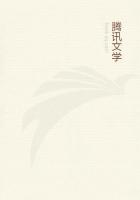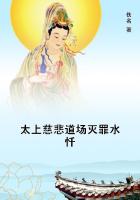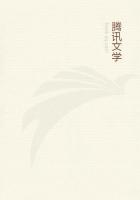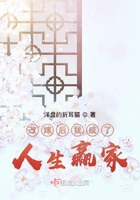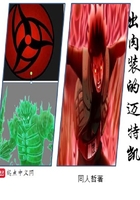A special commission (/Congregatio de Auxiliis/), presided over by Cardinals Madrucci and Arrigone, was appointed to examine the questions at issue. The first session was held in January 1598, and in February of the same year the majority of the members reported in favour of condemning Molina's book. Clement VIII. requested the commission to consider the evidence more fully, but in a comparatively short time the majority presented a second report unfavourable to Molina. Representatives of the Dominicans and Jesuits were invited to attend in the hope that by means of friendly discussion an agreement satisfactory to both parties might be secured. In 1601 the majority were in favour of condemning twenty propositions taken from Molina's work, but the Pope refused to confirm the decision. From 1602 till 1605 the sessions were held in the presence of the Pope and of many of the cardinals. Among the consultors was Peter Lombard, Archbishop of Armagh. The death of Clement VIII. in March 1605 led to an adjournment. In September 1605 the sessions were resumed and continued till March 1606, when the votes of the consultors were handed in. In July 1607 these were placed before the cardinals for their opinions, but a little later it was announced that the decision of the Holy See would be made public at the proper time, and that meanwhile both parties were at liberty to teach their opinions. Neither side was, however, to accuse the other of heresy. Since that time no definite decision has been given, and, so far as the dogmas of faith are concerned, theologians are at full liberty to accept Thomism or Molinism.
(c) Jansenism.
Rapin, /Histoire du Jansenisme depuis son origine jusqu' en 1644/, 1861. Paquier, /Le Jansenisme, etude doctrinale d'apres les sources/, 1909. Dechamps, /De haeresi jansemiana ab Apostolica Sede proscripta/, 1654. Du Mas, /Histoire des cinque propositions de Jansenius/, 1699. Saint-Beuve, /Port Royal/, 3rd edition, 1867-71. Seche, /Les derniers Jansenistes/, 1891. Van den Peereboom, /Cornelius Jansensius septieme eveque d'Ypres/, 1882. Schill, /Die Constitution, Unigenitus/, 1876. Fuzet, /Les Jansenistes du XVIIe siecle/, 1876.
The influence exercised by Baius, and the ideas that he implanted in the minds of his students had a very disturbing effect on the University of Louvain. Amongst those who fell under the sway of Baianism at this period the best known if not the ablest was Cornelius Jansen (1585-1638). He studied at Utrecht, Paris, and Louvain. While in this latter place he formed a resolve to join the Society of Jesus, but for some reason or another he was refused admission, a slight which accounts in some measure for the continued antipathy he displayed during his life towards the Jesuits. At Louvain, too, he was associated very closely with a brilliant young French student, John du Verger de Hauranne (1581-1643), better known as the Abbot of St.
Cyran, whom he accompanied to Paris and afterwards to Bayonne, where both lived for almost twelve years. During these years of intimate friendship they had many opportunities of discussing the condition and prospects of the Catholic Church, the prevalence of what they considered Pelagian views amongst theologians, the neglect of the study of the Fathers, above all of St. Augustine, the laxity of confessors in imparting absolution and allowing their penitents to receive Holy Communion, and the absolute necessity of returning to the strict discipline of the early Church. In 1617 the two friends separated, Jansen returning to Louvain, where he was appointed to a chair of scriptural exegesis, and du Verger to Paris, where he took up his residence though he held at the same time the commendatory abbacy of St. Cyran. As professor of Scripture Jansen showed himself both industrious and orthodox, so that in 1636 on the nomination of Philip IV. of Spain he was appointed Bishop of Ypres. From that time till 1639, when he passed away, he administered the affairs of his diocese with commendable prudence and zeal.
During the greater portion of his life he had devoted all his spare moments to the study of the works of St. Augustine, especially those directed against the Pelagians, and he had prepared a treatise on Grace, in which treatise he claimed to have reproduced exactly the teaching of St. Augustine. This work was finished but not published when he took seriously ill, and the manuscript was handed over by him to some friends for publication. Before his death, however, he declared in presence of witnesses that "if the Holy See wishes any change I am an obedient son and I submit to that Church in which Ihave lived to my dying hour."[1] Notwithstanding various efforts that were made to prevent publication Jansen's book /Augustinus/ was given to the world in 1640.
Like Baius Jansen refused to recognise that in the condition of innocence, in which man was constituted before the Fall, he was endowed with numerous gifts and graces, that were pure gifts of God in no way due to human nature. Hence he maintained that by the sin of our First Parents human nature was essentially corrupted, and man fell helplessly under the control of concupiscence, so that, do what he would, he must of necessity sin. There was therefore in man an irresistible inclination impelling him towards evil, to counteract which Grace was given as a force impelling him towards good, with the result that he was drawn necessarily towards good or evil according to the relative strength of these two conflicting delectations. It followed from this that merely sufficient grace was never given. If the Grace was stronger than the tendency towards evil it was efficacious; if it was weaker it was not sufficient. Yet, whether he acted under the impulse of Grace or of concupiscence, man acted freely, because, according to Jansen, absence of all external pressure was all that was required to make an act free and worthy of praise or blame.

